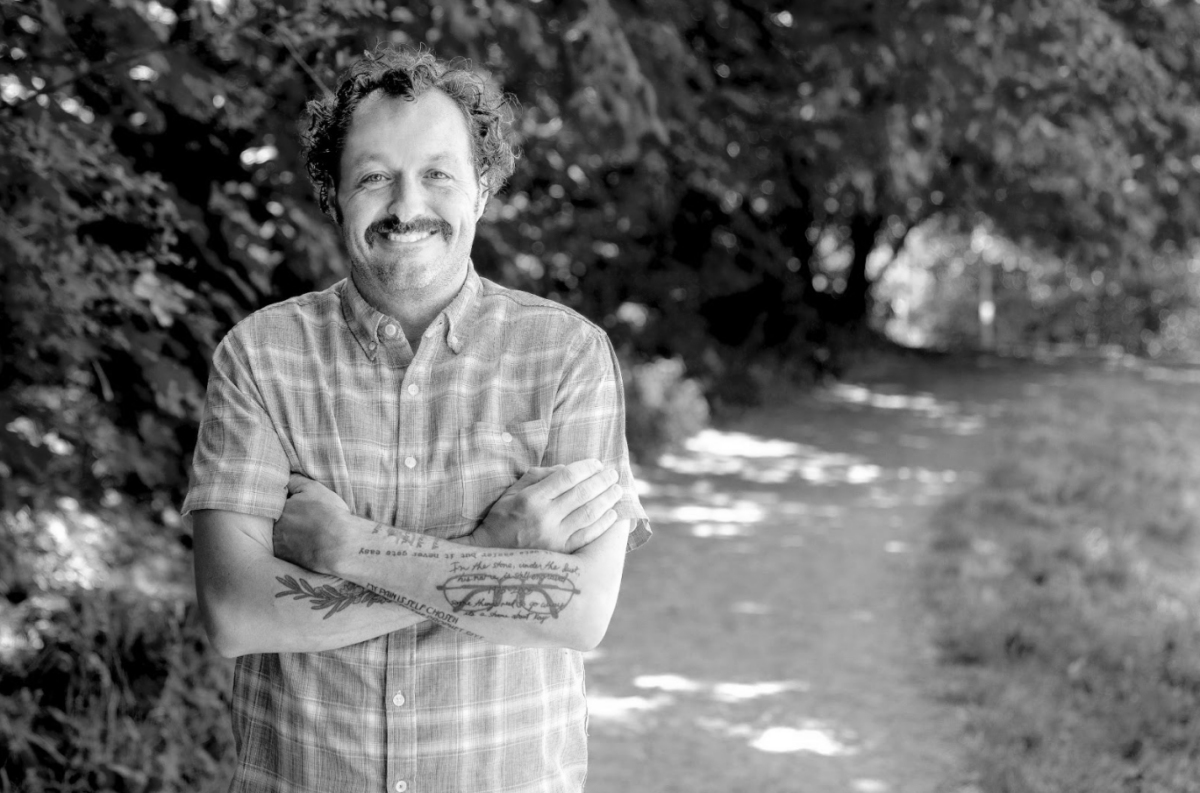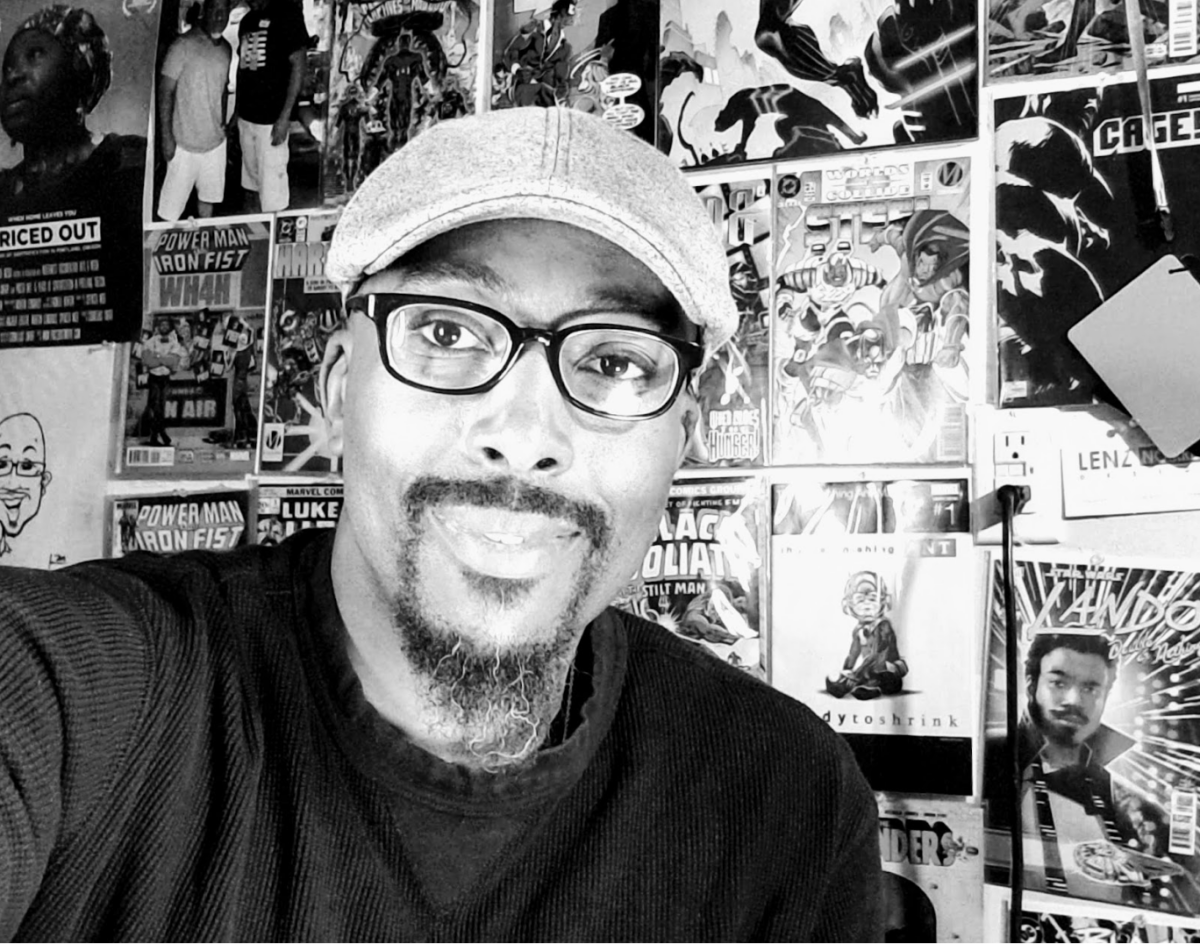Q&A with Jesse Cornett
Jesse Cornett, the policy and advocacy director at Oregon Recovers, has lived in Portland for nearly 30 years. Much of that time he’s been involved in politics or policy-making. He was a veterans caseworker for Congressman Earl Blumenauer, the senior policy director for former Oregon Secretary of State Bill Bradbury and he worked on both of Bernie Sanders’ presidential campaigns. A former bar owner, he is now in recovery himself and is outspoken about the need for more detox and recovery beds in Portland. We spoke to Cornett about his campaign for City Council (District 3), his thoughts on the roll-back of Measure 110, and what changes he’d make to Sunnyside, if he could.
How long have you lived in Sunnyside?
I started dating my partner, Andrea, in early 2022, and I’ve largely been here since. I’ve lived in a lot of Portland neighborhoods.
How did you get involved in recovery?
I taught at Portland State between 2013 and 2019. One of the classes I taught was “The Legislative Process.” In 2019 I had Oregon Recover’s then-program director in my class. In the 2021 legislative session, they were talking about a beer tax, and I went to this former student, Andrew, and asked if I could help. They said yes. Basically I went to them one day and said, “Hey, you gotta hire me as your lobbyist.” They were like “OK!”
So I lobbied on the beer tax, unsuccessfully. At the end of session, Andrew left to go to law school and asked me to step in as the policy and advocacy director; I agreed and did that for the rest of 2021. I left in 2022, but I remained on the board. At the end of 2023 they asked me to step in when Tony Morse left so he could focus on his campaign for City Council (District 4).
You’ve run for City Council before, right?
I ran in 2010. I did not fare well, but I do like mentioning it. It was a last minute campaign. It was uninspired. I have been pretty open with my struggles with addiction and mental health. I think the reality was that I was in the depth of that at the time and had no business running. But, I did care about the issues.
I also ran for State Senate in 2006, and I lost by 162 votes. You don’t forget those things. And both the people who I ran against (Dan Saltzman and Rod Monroe) have endorsed me this time, which I think is neat.
Why are you running for City Council?
I’ve been in and around the political process for two decades. As a staffer to elected officials I’ve managed and worked on high-level campaigns. I never thought I’d run again after I ran and lost in 2010. But, I worked for Bernie Sanders’ campaigns, and in the second campaign I did some really neat things—neat, hard things. I went to Canada with a bus full of diabetes patients to buy insulin at ten cents on the dollar. I went to a child detention center and stood at the gates with Bernie and saw where we as a country are literally caging kids. I know those aren’t local issues—but they resonated for me. And when I got back to Portland, I walked everywhere and saw tents and the suffering on our streets. Even worse is the open hostility to people living outside. And it’s hard to not hurt.
So in June of last year I started thinking about this. I looked at who we had in positions of leadership—at the federal level it was Kevin McCarthy as Speaker of the House and in Portland Ted Wheeler was mayor. I just realized, “If these are the people leading our country and city, well, [expletive] it! I believe I can do remarkably better.” I come at this from a much more compassionate place. I think I have something to say. For me, housing and homelessness, addiction, public safety, and climate change are the big issues. I think, especially with climate change, we’re really not doing a good job of preparing for the realities of the damage that’s already been done, especially in terms of climate refugees.
I know Measure 110 was passed state-wide, but what do you make of the legislature’s decision to roll it back?
I didn’t support Measure 110—the support structures for those caught with drugs were not built out. Nor did I support recriminalization, because of the equity issue that I saw.
What Measure 110 did, as you know, is decriminalized the possession of small amounts of drugs. Simultaneously, it diverted funding to create a system to deal with the aftermath. The idea was that, we’re not putting people in jail, so let’s create other programs—a behavioral health resource network. Well, we stopped handing out citations prior to these programs being built up. We should have built programs first and then changed the penalties. The legislature didn’t seem to learn anything from that, because what they did was they recriminalized possession. And they are going to build an entirely new system to deal with the aftermath.
What do you mean “an entirely new system?”
Deflection. This fancy new diversion system [meant to divert people from the criminal justice system by steering drug users toward treatment, recovery services, housing and other services]—but it doesn’t exist. [Each county will design its own system.] The legislature gave Multnomah County $25 million and it’s expected to be in place by September.
Thirteen counties didn’t opt in. You don’t have to so in 13 counties you are not going to be offered deflection. You are just going to get a criminal charge, full stop. In the 23 counties that signed on to this law, there isn’t a requirement for consistent enforcement. So, if me and a 20 year old black man were high and smoking fentanyl in front of your house, a police officer can show up and can send me to treatment and the black man to jail. And I think it’s simply unacceptable.
What do you love about Sunnyside?
The restaurants! I love Bluto’s. The walkability! I go into Safeway at least six times a week. I’ve gotten to know the workers there. The coffee shops! I’ve been going to Common Grounds more and more. It lacks pretense, which I like.
What is one thing you would change about Sunnyside, if you could?
Make it more affordable. I’m aware of how lucky I am that Andrea bought her place in 1999. Keeping it affordable would be good.
What do you think of the Inner Eastside for All campaign that Portland Neighbors Welcome is putting forth?
There’s a delicate balance. I talked about climate refugees. That’s gonna worsen in the next 20-30 years, and we have to keep up with the growing demand. Those are going to be immigrants in a lot of cases. I don’t think that we should just focus on building more cheap housing on 122nd. I think there’s a vibrancy to mixed neighborhoods. I don’t like the concept of tearing down perfectly good buildings to put up new bigger ones. But there’s also a balance of keeping up with demand. We have to simultaneously be mindful of the desire of the historical neighbors, the threats of climate change, but also manage the population.
I’m also in favor of a land value tax on empty lots. You’ve got this city block that’s just sitting there vacant? It’s out there vacant for 60 years. OK, cool, you can continue to do that, and the value of that lot would be, let’s say, $10 million. So we’re going to assess your tax at the $10 million level. And if you’d like to develop the lot to keep up with your taxes, great. If you just want to pay the taxes, OK. It would incentivize development. If I were to promote something like that—I would say there should be a 5-year period (or maybe even 10) where there’s no tax assessed. So year 6, you start getting assessed. And maybe we ramp it up over those 5 years.
Cat or dog?
I think that’s an unfair question! Andrea has a dog; I love that dog and I love dogs. But, my answer is nuanced. More nights than adults should admit I’m watching stupid cat videos.


